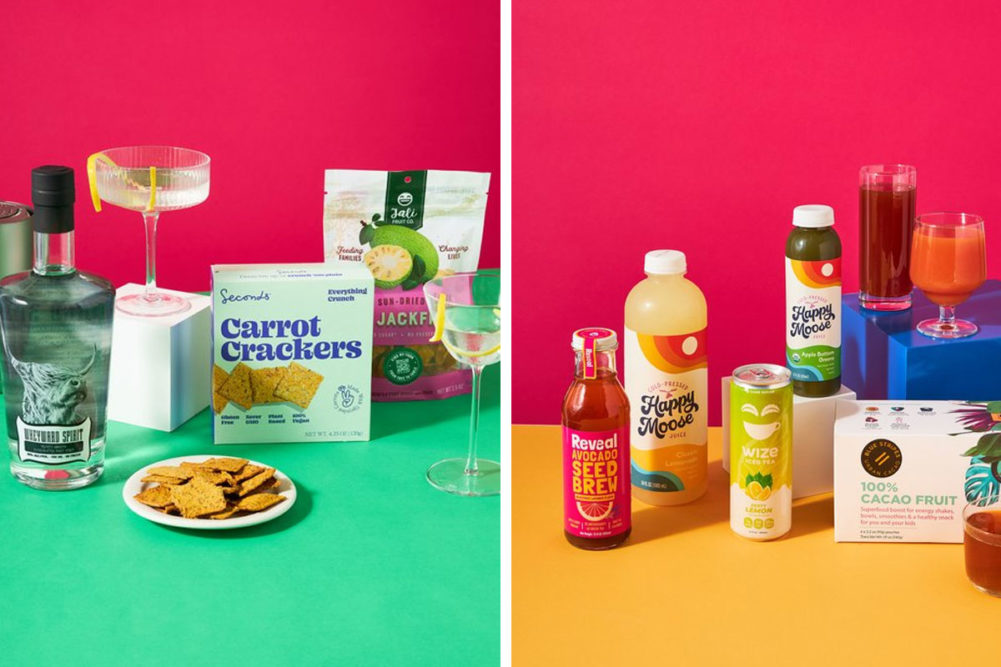PHILADELPHIA — The upcycled food category has gained momentum in recent years, representing a $53 billion global market with many small- and medium-size companies leading the way. Large food manufacturers and retailers will play an important role in the future of reducing food waste as a solution to combat climate change, according to panelists speaking during a Sept. 30 discussion in Philadelphia.
More than 200 consumer products have added Upcycled Certified seals to packaging. Such items incorporate ingredients that otherwise would have not gone to human consumption, are procured and produced using verifiable supply chains and have a positive impact on the environment, according to the Upcycled Food Association. The Upcycled Certified program is estimated to prevent 840 million lbs of food waste each year. Industry trend analysts are expecting to see more brands promoting upcycled ingredients in the coming year.
About 10% of consumers are familiar with upcycled foods; however, interest in purchasing such products is high among those who are educated on the concept, said Ben Gray, co-founder and chief innovation officer at the Denver-based Upcycled Food Association. Brand marketers can expand awareness and demand by demonstrating the environmental benefits of upcycling. Caue Suplicy, founder of snack brand Barnana, said shoppers are seeking sustainably produced products.
“During the pandemic, personal health was the No. 1 consumer purchase driver,” Mr. Suplicy said. “Now, with the issues we are having with climate, supporting the health of the planet is becoming a top driver.”
The marketplace features numerous applications for upcycled ingredients, including surplus foods from farms, byproducts from food manufacturing, and underutilized parts of food, such as citrus peels, avocado seeds or eggshells. Barnana sources bananas and plantains from farms in the Amazon, a significant percentage of which were deemed unfit for export and would rot in fields. Opportunities exist for established companies to examine supply chains and uncover ways to further fight waste, which also may improve margins, Mr. Suplicy said.
“The industry needs to stay in step with the farmers,” said Case Samuel, chief sales officer at Sunrise Fresh, a dried fruit company. “They care about what they grow; they don’t want to see it thrown away.”
Alexandra Hickey, director of merchandising for Imperfect Foods, said many consumer packaged goods manufacturers may not understand the advantages of joining the upcycled food category.
“A lot of these companies think it’s going to be more expensive, and they’re stuck in a ‘we’ve always done it this way’ mindset,” she said. “It’s on us to educate manufacturers that there is a demand and a need for upcycled products.”
Imperfect Foods, an online grocer focused on reducing food waste, is merging with Misfits Market, creating a combined business set to surpass $1 billion in sales and reach profitability by early 2024. Imperfect Foods, founded in 2015, and Misfits Market, founded in 2018, have collectively saved nearly 500 million lbs of food from “lesser outcomes,” according to the companies, by partnering with producers to rescue and redistribute irregular or surplus produce, pantry staples and more to consumers at lower costs.
“Online grocery now comprises 12% of the total category,” Ms. Hickey said. “Together, we have an opportunity to push the market in a new direction and challenge large grocers to embrace the upcycled movement.”
The Kroger Co. and Whole Foods Market are among major retailers stocking more upcycled products on shelves. Both recently introduced Upcycled Certified baking mixes as part of private label offerings.
“Retailers have the power to put upcycled products in places where consumers can find them so it’s easier for them to make the sustainable purchase decision,” Mr. Suplicy said.





